Desperate for oxygen and medicines, many Covid-hit Indians are falling prey to scams
As Covid-19 spreads through the length and breadth of India, medical emergencies aren’t the only hurdle that families of Covid-19 patients have to deal with. Amid an acute shortage of healthcare resources, many panicked and needy caregivers are dealing with scamsters trying to make an extra buck from the dreadful situation.
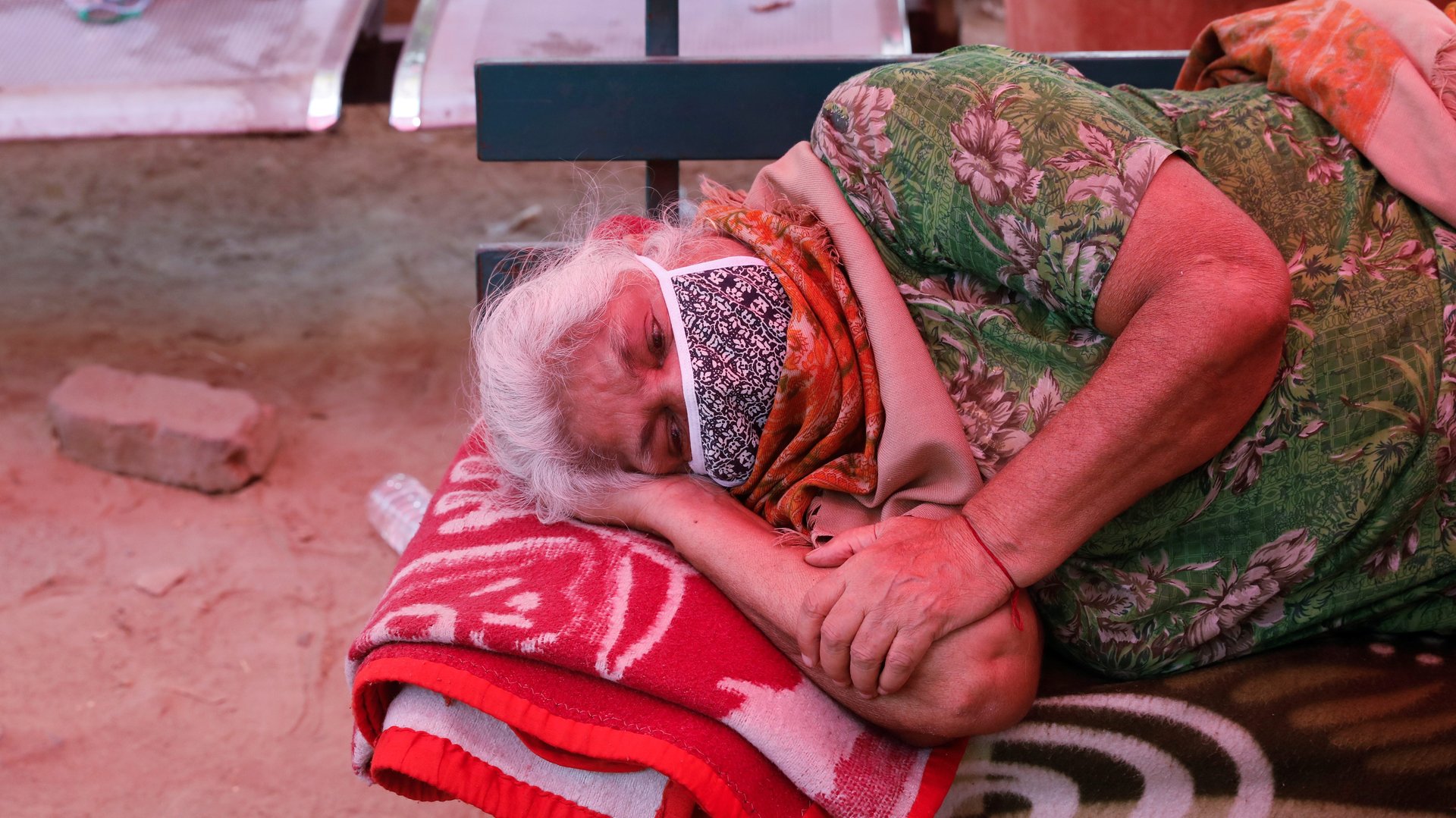

As Covid-19 spreads through the length and breadth of India, medical emergencies aren’t the only hurdle that families of Covid-19 patients have to deal with. Amid an acute shortage of healthcare resources, many panicked and needy caregivers are dealing with scamsters trying to make an extra buck from the dreadful situation.
Take for example Shikha Sharma, a 40-year old housewife from Uttar Pradesh’s Ghaziabad, who struggled to find remdesivir injections for her covid positive husband earlier this month. After knocking on many doors—even as she cared for two other Covid patients in her family—the only source she found was a black market dealer who quoted 80% higher than the original price and insisted the entire payment be made in advance.
The drug, which is being widely prescribed in India despite scientific research questioning its effectiveness, has been in short supply for months now. Sharma suspected foul play and did not make the payment. A day later she found the required dose at a medical store in south Delhi.
But unlike Sharma, many others have fallen prey to such fake dealers.
Covid-19 duping scams
At a time when Indians are fighting to save their loved ones amid a scarcity of hospital beds, medicines, oxygen, and other essential medical supplies, scamsters are working overtime to leverage the desperate situation.
One of the most common tricks is taking an advance payment with the promise to provide an oxygen cylinder. Hapless relatives and friends have in many cases paid up to Rs50,000 ($677) only to realise that the seller was not real and cannot be traced once the transfer has been made.
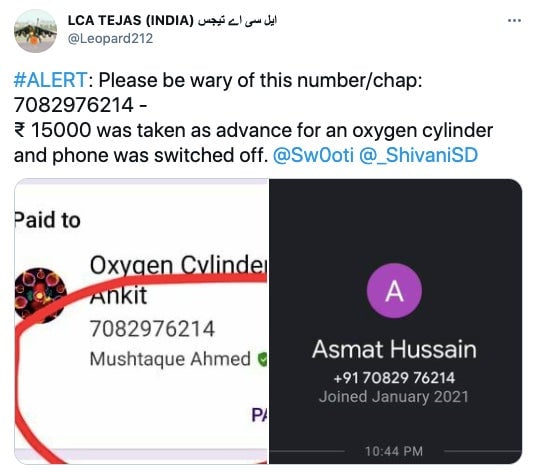
Many are also duping families with fake promises of medicines, especially remdesivir, an injection that has been selling in India for up to Rs75,000 in the black market, much higher than its authentic starting price of Rs899, as per a report by the BBC.
Besides taking advance and never making a delivery, some scamsters are also delivering dupes of the medicine that look identical to the real one.
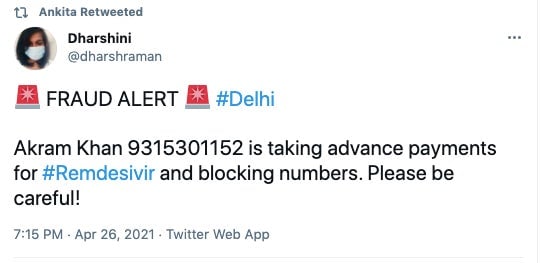
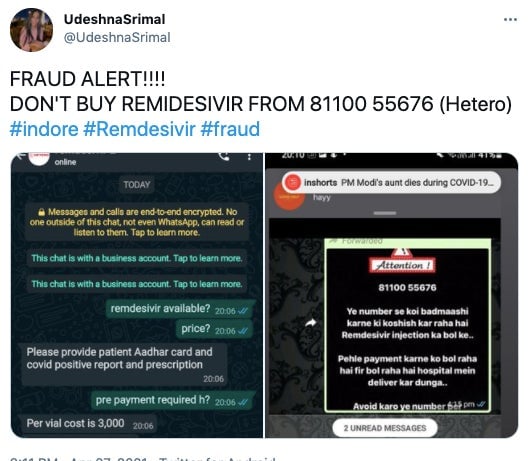
The situation is so dire that on April 22 pharma company Cipla issued a statement asking people to beware of such sources.
“Unscrupulous persons have set up bank accounts fraudulently in name of Cipla,” the company said.
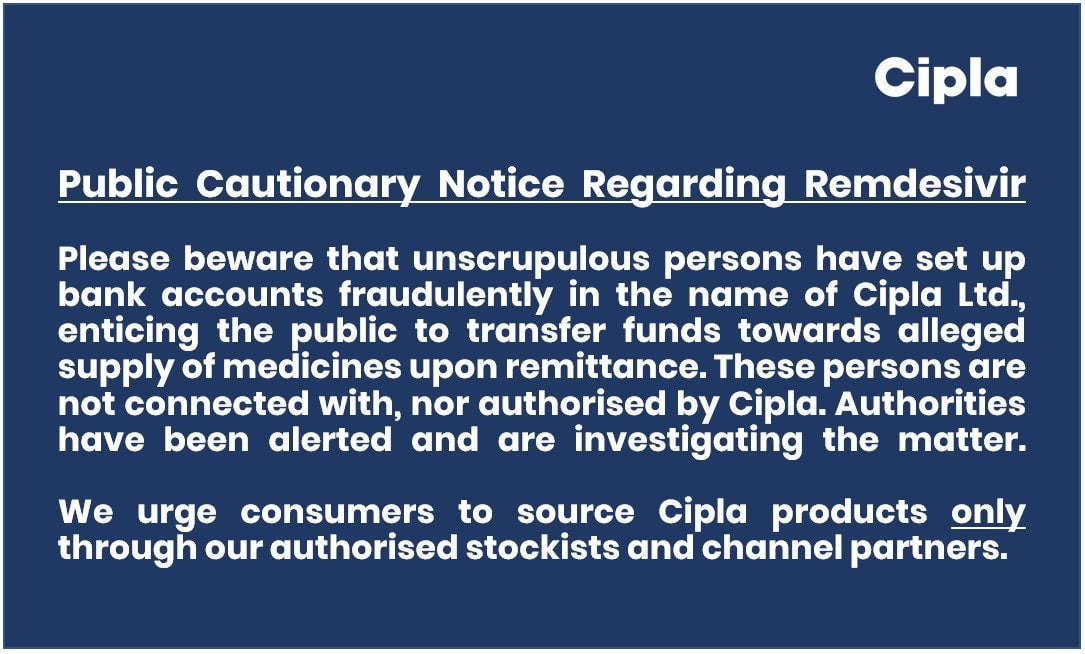
Hoarding and black marketing during Covid-19
On April 26, the Delhi police arrested a 32-year-old nurse from a hospital in the national capital and her associate for alleged black marketing of Remdesivir. The duo was selling a couple of doses of remdesivir for Rs1.16 lakh. Two days later, the Delhi police arrested three others hoarding and selling oxygen cylinders and other medical supplies at higher prices.
Meanwhile, the acute shortage of oxygen at some of the top hospitals in India has spooked some upper-middle-class Indians so much that they are trying to directly import cylinders from other countries and hoard them, in case they need it someday.
After all, importing an oxygen cylinder from Singapore costs just Rs18,000, way less than what it would cost to procure one locally right now.
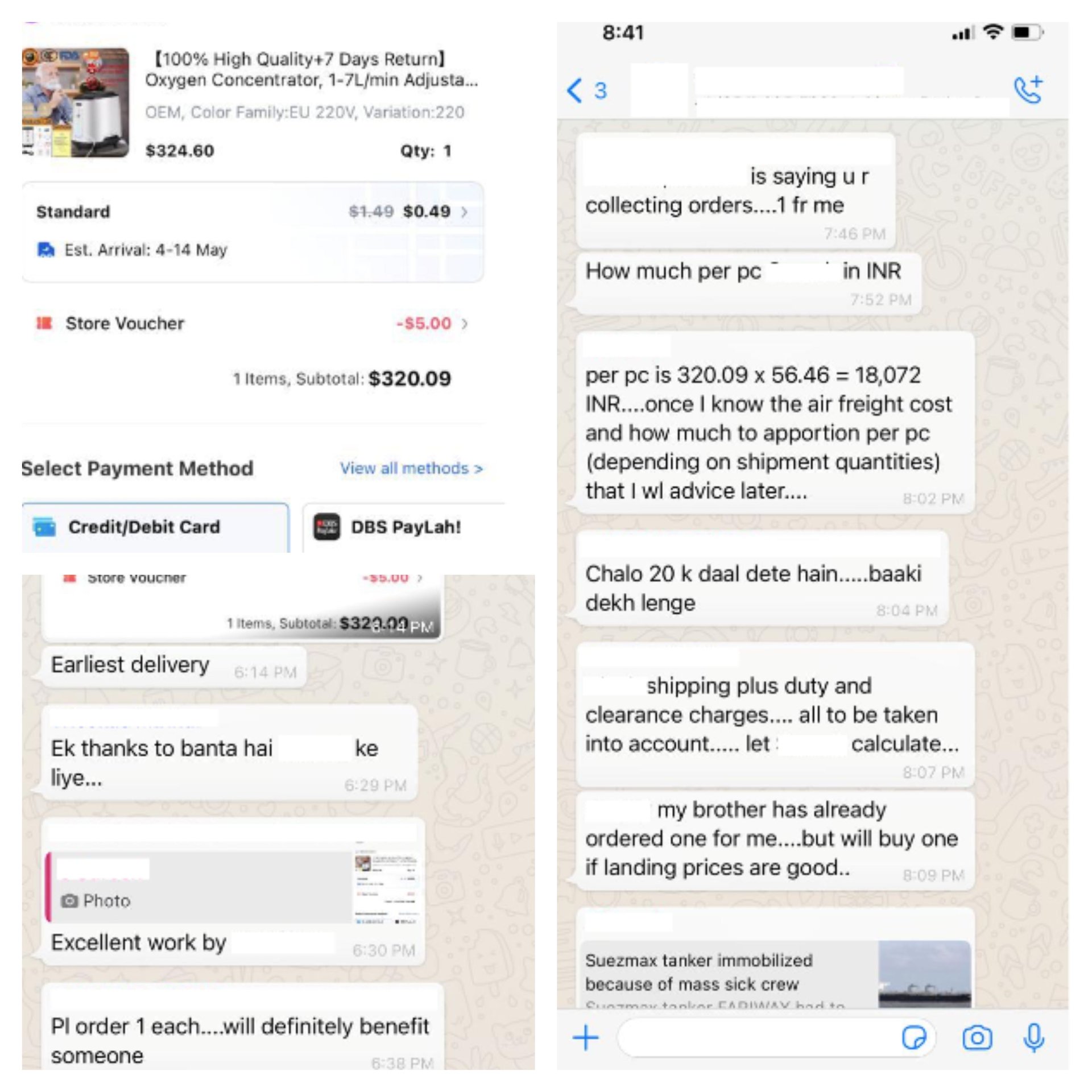
“These families are planning to stock cylinders just because they can, none of them actually needs one yet,” a member of a WhatsApp group where such orders were being finalised told Quartz.